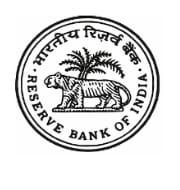RBI initiates steps to set up digital Public Credit Registry (PCR) to capture details of all borrowers
Reserve Bank of India (RBI) has initiated steps to set up wide-based digital Public Credit Registry (PCR) to capture loan information of individuals and corporate borrowers. In this regard, RBI has invited expression of interest (EOI) for developing PSC from companies with turnover of over Rs 100 crore in last three years. Setting up of PCR assumes significance amidst rising bad loans in financial system. The non-performing assets (NPAs) in Indian banking system is about Rs 10 lakh crore.
Public Credit Registry (PCR)
PCR is digital registry of authenticated granular credit information. It will work as financial information infrastructure providing access to various stakeholders and enrich the existing credit information ecosystem. It seeks to serve as single point of mandatory reporting for all material events for each loan, notwithstanding any threshold in the loan amount or type of borrower.
PCR will capture all details of borrowers, including wilful defaulters and also pending legal suits in order to check financial delinquencies. It will also include data from entities like market regulator SEBI, Corporate Affairs Ministry, Goods and Service Tax Network (GSTN) and Insolvency and Bankruptcy Board of India (IBBI) to enable banks and financial institutions to get 360 degree profile of existing and prospective borrowers on real-time basis.
Background
In June 2018, RBI had announced to set up PCR for India with view to address information asymmetry, foster access to credit and strengthen the credit culture in the economy. This decision was taken based on recommendation of high-level task force (HTF) i.e. YM Deosthalee committee which was constituted by RBI to review current availability of information on credit, adequacy of existing information utilities, and identify gaps that could be filled by PCR.
Currently, there are multiple granular credit information repositories in India, with each having somewhat distinct objectives and coverage. Within RBI, CRILC is borrower level supervisory dataset with threshold in aggregate exposure of Rs 5 crore. Moreover, there are four privately owned credit information companies (CICs) operating in India. RBI has mandated all its regulated entities to submit credit information individually to all four CICs.
Month: Current Affairs - November, 2018


